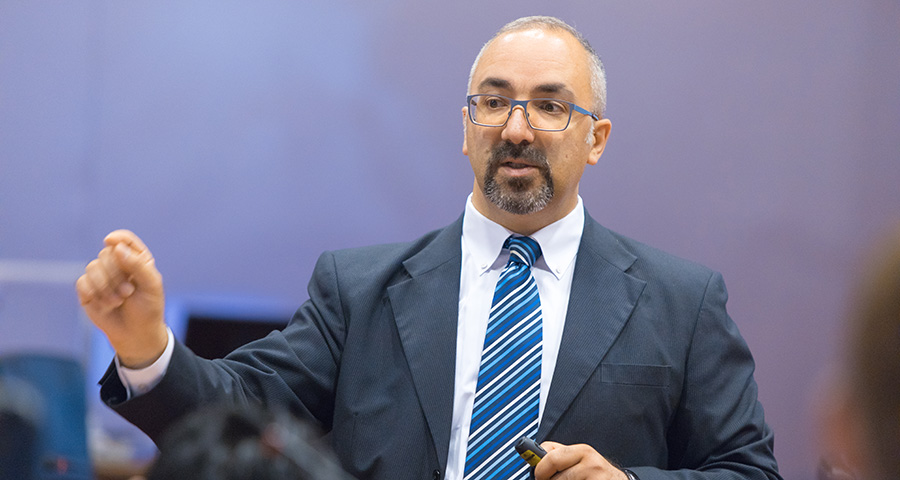
Chadi Aoun talks to The Peninsula about desertification
Originally published December 9, 2023, in The Peninsula.
By Fabeena Saleem
Doha, Qatar: In the face of the growing global population and its associated demands on the planet’s resources, Qatar is emerging as a proactive force in addressing the pressing issue of desertification.
Dr. Chadi Aoun, a distinguished professor in Information Systems at Carnegie Mellon University in Qatar (CMU-Q), sheds light on the multifaceted approach required to tackle this critical challenge.
“Qatar is playing a productive role in addressing desertification,” he said to The Peninsula. “At the international level, Qatar is a signatory to UNFCCC’s Paris Agreement on climate change, is a party to the UN Convention to Combat Desertification (UNCCD) and is taking a lead in capacity building and awareness through initiatives like hosting Expo 2023 – a key forum for awareness, learning, and planting the seeds for collaboration,” said Dr. Aoun.
The recent milestone of the world population surpassing 8 billion underscores the urgency of addressing the environmental consequences of human activity. Dr. Aoun points out, “This exponential surge imposes commensurate demands on our planet’s resources, leading to substantial increases in Greenhouse Gas (GHG) emissions and contributing to a warming global climate. Desertification becomes a critical issue with extended droughts and flash floods exacerbating the challenge.”
Desertification is particularly relevant to the MENA region, requiring global mitigation measures in line with the UNFCCC’s Paris Agreement. Dr. Aoun emphasises the need for adaptation measures, including soil erosion control, water management, afforestation, and empowering local committees for ecosystem preservation.
Technological innovation, especially in Information Systems, plays a pivotal role in addressing desertification challenges. Dr. Aoun identifies key areas of innovation: “Tools for assessing and tracking desertification, remote sensing, Geographic Information Systems (GIS), resource and water management technologies like Data Analytics and Decision Support Systems, and sensing technologies such as the Internet of Things (IoT) and AI/ML for agriculture.”
“Education and awareness are essential enablers for innovation and its diffusion,” notes Dr. Aoun. “Information systems for education, transparency, and collaboration are central to the challenge, providing opportunities for public and private sector collaboration.”
Dr. Aoun urges collective action, stating, “We are all stakeholders in this global issue. Governments, organizations, and individuals must act in concert. At the global level, striving to achieve the goals of international treaties is crucial. Organizations can empower technological innovation and model transparency, while individuals and communities need to be mindful of their emissions footprint and take initiatives for habitat and ecosystem preservation.”
Dr. Aoun emphasised, “We are all in it together. What’s good for the biosphere is good for all of us.”
